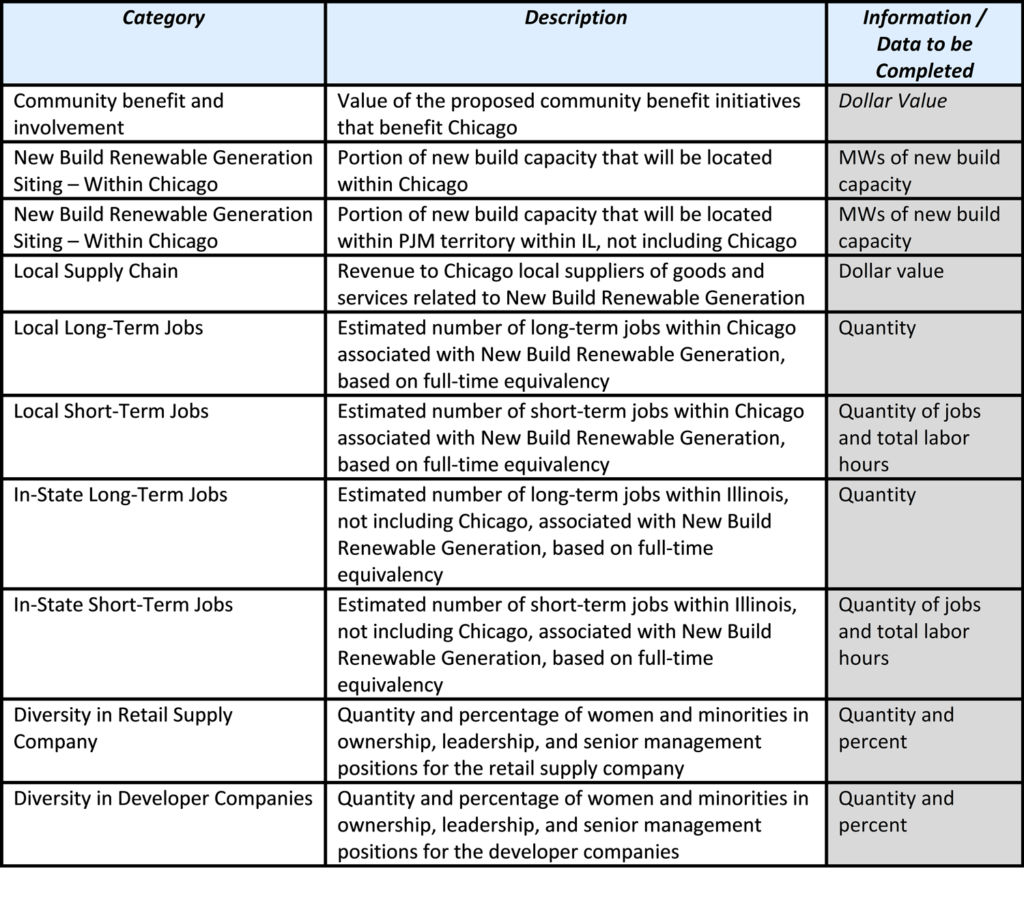Aerial View of Chicago Lake Shore Dr at sunrise in Autumn - October 2019

Chicago Pursues Ambitious and Innovative Procurement to Meet Renewable Energy Goals
Last week, the City of Chicago took a major step toward realizing its commitment to power city operations entirely with renewable energy by 2025. The City released a request for proposals (RFP) intended to facilitate the purchase of almost 1 terawatt-hour (TWh) of renewable electricity annually. In the absence of federal action on climate change and green jobs since 2016, it has fallen on cities and states to provide the leadership to create a more sustainable future for all.
Chicago, one of 25 cities receiving technical support from Rocky Mountain Institute, World Resources Institute, and others through the American Cities Climate Challenge, is emerging as a climate leader. In early 2019 the city set ambitious goals on renewable energy, fleet electrification, resilience, and environmental justice. Chicago’s renewable energy strategy for city operations hinges on rethinking how it purchases its electricity through a retail electricity provider (which is only an option in states that allow for retail choice). In addition to being one of the largest renewable energy solicitations issued by a city to date, it is also one of the most innovative—with several elements that could influence municipal renewable energy procurement across the country, including:
- A minimum requirement for new renewable energy projects
- Contract flexibility to allow for separable power purchase agreements (PPAs)
- Integrated evaluation of local economic development and equity co-benefits
Here are highlights of each of these three novel elements.
1. A Minimum Requirement for New Renewable Energy Projects
The city is explicitly seeking proposals that offer a minimum of 50 percent of the renewable electricity delivered by 2025 to be from newly built projects.
- What does this mean? Rather than just purchase existing clean electricity from the market, Chicago is intentionally seeking to bring new renewable energy projects to the grid. The city seeks to consume, at a minimum, approximately 486 GWh annually in newly-added renewables to the grid—roughly equivalent to the average annual consumption of more than 44,000 American homes.
- Why is this innovative? In the RFP, the city makes it clear that this 50 percent minimum is not just a preference but a required threshold for proposals to be considered. That said, the four-year on-ramp to 2025 offers crucial flexibility to suppliers to build a competitive project portfolio.
2. Contract Flexibility to Allow for Separable Power Purchase Agreements (PPAs)
At the end of the initial five-year period, the city can seek a new provider or extend the existing contract. Should it choose the first option, the city would retain and transfer the long-term PPAs it already has signed to its new provider for its electricity.
- What does this mean? This allows retailers to incorporate new-build renewable energy projects, either of their own development or in partnership with other project developers, that are not bound by the five-year contract window. For projects to get financed competitively, the average utility-scale PPA is 10–15 years. Yet, many buyers— from cities to corporations—are wary of locking themselves in to such a long contract.This hybrid approach enables the city to sign a shorter retail contract for its electricity needs. Simultaneously, the city would have an option to separate out parts of its energy portfolio into longer-term agreements that may offer more attractive pricing. It is the equivalent of the city seeking to lease a truck and trailer for five years with the option to detach the trailer after the initial contract is up and hook it up to a different vehicle.
- Why is this innovative? This separability will allow Chicago to sign up parts of its energy portfolio for long-term PPAs but not be tied to a specific retail provider for the full duration of the PPA. The city will likely still need to commit to longer-term PPA contracts for the new wind farms and solar arrays built by their retailers. However, this contract structure enables it to have the flexibility to change providers if it is in the best interest of Chicago.
3. Integrated Evaluation of Local Economic Development and Equity Benefits
Chicago Mayor Lori Lightfoot and the city’s leadership are committed to not just purchasing renewable energy but also facilitating a just energy transition for all Chicago residents and businesses.
- What does this mean? Renewable energy contracts, especially for new-build renewables, are never solely an electricity arrangement. To help enable a just energy transition, Chicago will prioritize proposals that include local projects either in Chicago or Northern Illinois, support local suppliers, leverage the local workforce for construction and operations, encourage diversity in developer and supplier leadership teams, and support other community benefits. See RFP excerpt below:
- Why is this innovative? Chicago is not the only city to consider these benefits. Other cities, including Charlotte, Cincinnati, Houston, and Philadelphia, have evaluated large-scale renewable energy proposals based in part on the local jobs created and proximity to the community. However, Chicago’s size, buying power, criteria specificity, and the relative weight it places on these values arguably show even greater ambition and potential for impact. The city specifies 10 detailed factors it intends to consider and defines those factors (both in the chart and in more detail in the RFP) to ensure consistency with Chicago’s priorities. Furthermore, one-third of the city’s proposal evaluation score will be based on these benefits to the Chicago community—equal in weight to pricing and the renewable energy delivery approach.
The Windy City is making progress on its ambitious climate action commitments and doing so in a tangible way that is a welcome ray of sunshine for the people of Chicago and the planet. The three elements outlined above show how Chicago and other local governments can use renewable energy contracts to drive meaningful change in their communities and be strategic players in the energy market to shape a just energy transition. Chicago is approaching this contract with a true triple bottom line in mind by seeking projects, services, and companies that deliver environmental, social, and financial benefits.
Local governments looking to advance their own renewable energy and environmental justice efforts should take notice and consider whether parts of Chicago’s RFP can help inform their own efforts. And there is no need to reinvent the wheel. The American Cities Climate Challenge Renewables Accelerator, co-led by Rocky Mountain Institute and World Resources Institute, has developed and compiled tools and resources to help local governments advance their renewable energy goals. These include RFP examples and templates, step-by-step procurement guidance, and a tracker documenting city actions on renewables around the country—all free and publicly available at www.cityrenewables.org.
For questions or more information on this project or how the Renewables Accelerator can help your city, please contact Matthew Popkin at mpopkin@rmi.org
